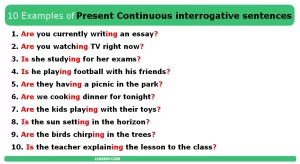The interrogative (question) form of the verb BE in English is used to ask questions about a person, thing, or situation. This form is particularly important in conversations, as it allows us to gather information and clarify doubts. In this blog post, we will go into depth on how to form interrogative sentences with the irregular verb BE in different tenses, as well as provide some examples.
The use of the verb BE in different tenses
To form a basic interrogative sentence with the verb BE in the present simple tense, we simply switch the positions of the subject and the verb. For example, instead of saying “She is happy”, we ask “Is she happy?” This rule applies to all subjects, singular or plural.
In the past simple tense, the basic structure is the same. We switch the positions of the subject and the verb to form a question. For example, instead of saying “They were happy”, we ask “Were they happy?” Again, this rule applies to all subjects.
In the present continuous tense, we use the auxiliary verb BE followed by the main verb in the present participle form. To form a question, we switch the positions of the subject and the auxiliary verb. For example, instead of saying “He is studying”, we ask “Is he studying?”
In the past continuous tense, we use the past tense of the auxiliary verb BE followed by the main verb in the present participle form. For example, instead of saying “They were playing soccer”, we ask “Were they playing soccer?”
In the present perfect tense, we use the auxiliary verb HAVE followed by the past participle form of the main verb. To form a question, we switch the positions of the subject and the auxiliary verb. For example, instead of saying “She has finished her work”, we ask “Has she finished her work?”
In the past perfect tense, we use the auxiliary verb HAD followed by the past participle form of the main verb. For example, instead of saying “They had already eaten”, we ask “Had they already eaten?”
Investigate also verb forms of BE (V1, V2, V3, V4, V5) and BE in the past and participle form.
More examples of Interrogative sentences with the verb BE
Look also at:
In conclusion, the interrogative form of the verb BE is a crucial aspect of English grammar that allows us to ask questions and gather information. By following the rules outlined in this blog post, you can confidently form interrogative sentences with the verb BE in different tenses.

